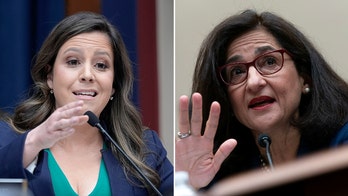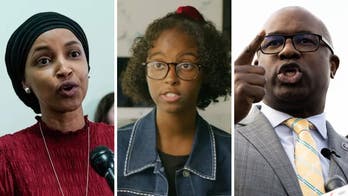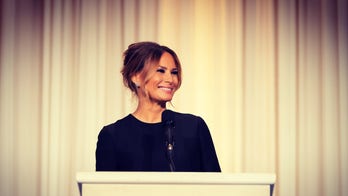Twitter and Facebook are so 2008. At least that's the message from some candidates vying for office in the upcoming midterm elections. This season, more and more politicos are using smartphone applications to reel in prospective voters.
The Obama campaign in October 2008 was the first to create an app in a national race. The free Obama08 iPhone app offered news feeds, a list of Obama's positions, and a way to organize contacts to help supporters call friends in crucial electoral districts.
Since then, smartphones - from iPhone to Android and Blackberry, have become the latest outreach frontier for candidates seeking national, state, and even local office.
Rep. Chaka Fattah (D-PA), California Republican gubernatorial nominee Meg Whitman, have launched smart phone applications within the past month. Others, such as former Republican Senate candidate Chuck DeVore (R-CA) and CA-33 Democratic candidate Felton Newell got on the board with their apps at the beginning of 2010.
Minnesota congresswoman Michelle Bachmann (R-MN 6) on Friday rolled out her iPhone app providing campaign updates, voter registration information, and a countdown to election day.
Within minutes, some of her 72,000-plus Facebook fans were clamoring for the campaign to make it available on other smartphone platforms.
"When people on other systems start griping and complaining, those are just growing pains," says Paul Levinson, professor of Communications and Media Studies at Fordham University. For now, he says, "The iPhone is the big ticket when it comes to smartphones, certainly when in terms of impact on popular culture. I think it was probably a smart move if you're going to go with an app for one system to choose the iPhone."
11.9 percent of registered voters are iPhone or iPad users, according to a study conducted by consumer intelligence tracker BIGresearch. Blackberry users weigh in at a respectable 14.3 percent, and Droid users comprise 4.6 percent. Democrats, the study says, are more likely to use new media or social media than Republicans or Independents.
As the smartphone platform grows past its infancy, politicians will expand their efforts, experts say. "We're going to see in the months to come that there will be apps for all kinds of smart phones," Levinson says. "If you want to reach that new media audience, you have to go beyond just the iPhone."
And while there will always be politicians on all sides of the new media learning curve, Levinson says the most successful politicians have had to adapt to new platforms for decades. "One of the things that made Franklin Delano Roosevelt so immensely powerful and popular was that he understood radio with his Fireside Chats," Levinson says, adding that Kennedy famously used television more effectively than Nixon. "This is just the latest chapter in the evolution of media and politics, and I think we're just in the opening pages of this chapter."
So now that you've read through the impact on apps for candidates and the midterms, be even more in the know and check out Fox News' new AEHQ app for exclusive content and analysis.




